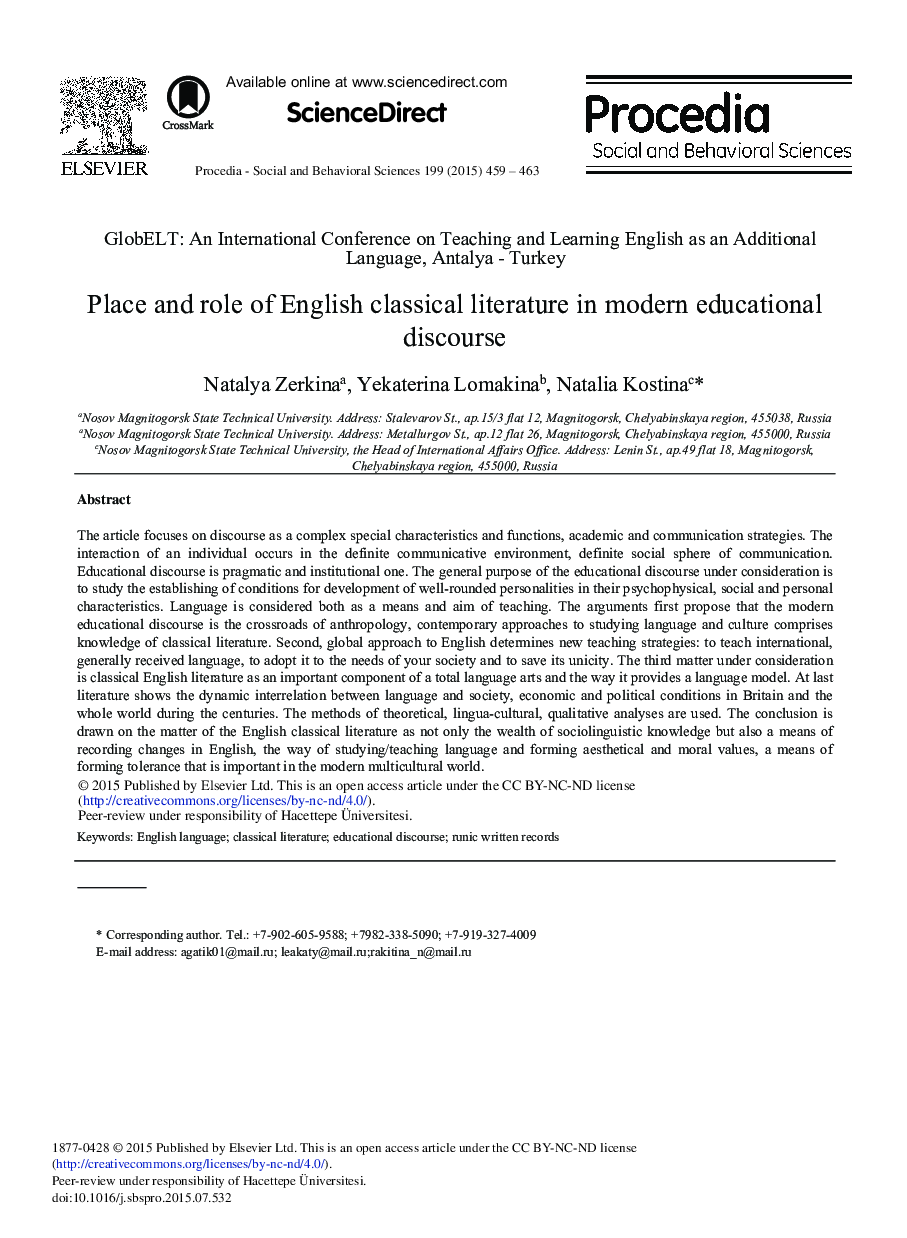| Article ID | Journal | Published Year | Pages | File Type |
|---|---|---|---|---|
| 1109811 | Procedia - Social and Behavioral Sciences | 2015 | 5 Pages |
The article focuses on discourse as a complex special characteristics and functions, academic and communication strategies. The interaction of an individual occurs in the definite communicative environment, definite social sphere of communication. Educational discourse is pragmatic and institutional one. The general purpose of the educational discourse under consideration is to study the establishing of conditions for development of well-rounded personalities in their psychophysical, social and personal characteristics. Language is considered both as a means and aim of teaching. The arguments first propose that the modern educational discourse is the crossroads of anthropology, contemporary approaches to studying language and culture comprises knowledge of classical literature. Second, global approach to English determines new teaching strategies: to teach international, generally received language, to adopt it to the needs of your society and to save its unicity. The third matter under consideration is classical English literature as an important component of a total language arts and the way it provides a language model. At last literature shows the dynamic interrelation between language and society, economic and political conditions in Britain and the whole world during the centuries. The methods of theoretical, lingua-cultural, qualitative analyses are used. The conclusion is drawn on the matter of the English classical literature as not only the wealth of sociolinguistic knowledge but also a means of recording changes in English, the way of studying/teaching language and forming aesthetical and moral values, a means of forming tolerance that is important in the modern multicultural world.
